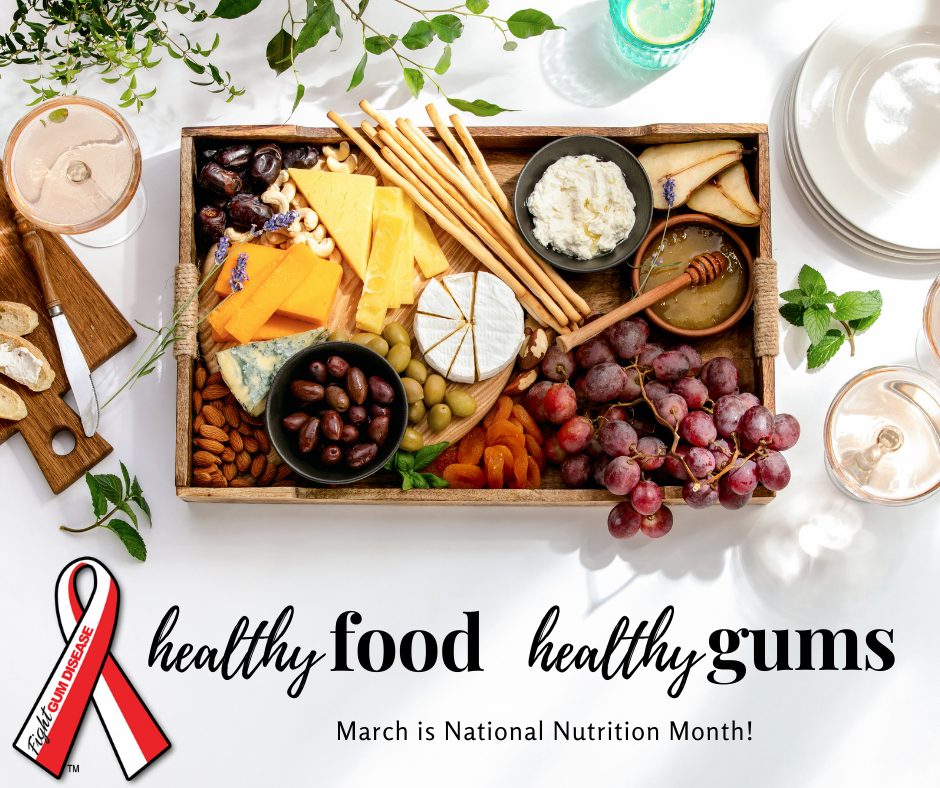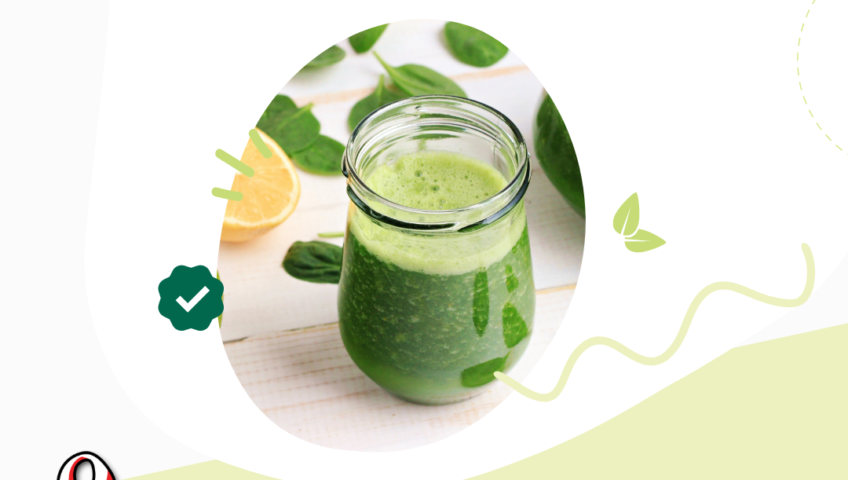We have all heard the saying “you are you what you eat.” The idea that what we eat can affect our health is not new. For National Nutrition Month, we wanted to know what specific foods can help our teeth and gums stay healthy. Here is what we’re putting on our next charcuterie board!
Fresh Fruits and Veggies

Ok, this isn’t exactly a shocker. The University of Illinois at Chicago (UIC) Dental College explains that beyond the nutritional benefits of fresh fruit and vegetables, they have an added teeth-cleaning benefit. Chewing on crunchy foods produces more saliva, which can help prevent the formation of plaque on your teeth. The bacteria that trigger gum disease embed into plaque and create an imbalance in your mouth. Keeping plaque from forming is a proactive way to help prevent periodontal disease.
Cheese
Cheese is consistently found in the lists of top foods for healthy teeth. (Woohoo!) Cheese tends to be low in sugar, high in calcium, and contains casein. These three features work really well together for keeping your teeth healthy. Bacteria feeds on sugar, so eating foods naturally lower in sugar can keep the bacteria in your mouth at normal, healthy levels.
Calcium helps keep your bones strong – including your jawbone (alveolar bone). American Bone Healthy explains it pretty simply. When your body creates bone, it starts with a framework of collagen. Then hard calcium crystals fill in the collagen framework to create strong bones. Almost every cell in your body needs calcium to function and if there isn’t enough calcium available, the cells will suck it out of your bones.
So how do we get calcium? This is where casein comes into the picture. Casein is a complete protein that contains all of the essential amino acids our bodies need. The Wisconsin Center for Dairy research notes that casein is a storage protein and a carrier protein found primarily in milk. It stores the protein calcium in order to deliver it from a mother to children via milk. So, the protein casein delivers the calcium found in milk that we need to maintain bone density.
Apples & Pears
Eating apples and other fibrous fruits can help clean your teeth and also increase saliva to keep your acid levels neutral. Fresh apples are the best; dried apples can be sticky and adhere to your teeth while apple juice is notoriously high in sugar.
Raw pears are also good for your teeth. While pears are naturally sweet, they also have high water levels that will help dilute the sugar. Pears are also a great source of vitamin C, and unlike citrus fruits better known sources of vitamin C, pears are less acidic and less likely to damage your enamel. Powerhouses of nutrition, pears contain fiber to help with digestion; flavonoids to help prevent type 2 diabetes; antioxidants which help prevent heart disease and cancer; and potassium that regulates heart rate and blood pressure.
Roasted Peanuts, Raw Walnuts & Edamame
One overlooked, but important nutrient in keeping our gums and teeth healthy, is CoQ10. Coenzyme Q10 (CoQ10) is an antioxidant that our bodies produce naturally and is used for growth, maintenance, and controlling inflammation. As we age, we produce less of this important anti-inflammatory substance. We know periodontal disease is an inflammatory disease – the pathogenic bacteria and endotoxins incite an inflammatory response. Your body tries to fight the inflammation by getting rid of the source – in the case of periodontal disease, your body tries to get rid your teeth.
Roasted peanuts, raw walnuts and soybeans (edamame) are some of highest plant-based sources of CoQ10.
Now that we know what foods can help keep our teeth and gums healthy, we just need to figure out what wine to drink with our charcuterie board.

